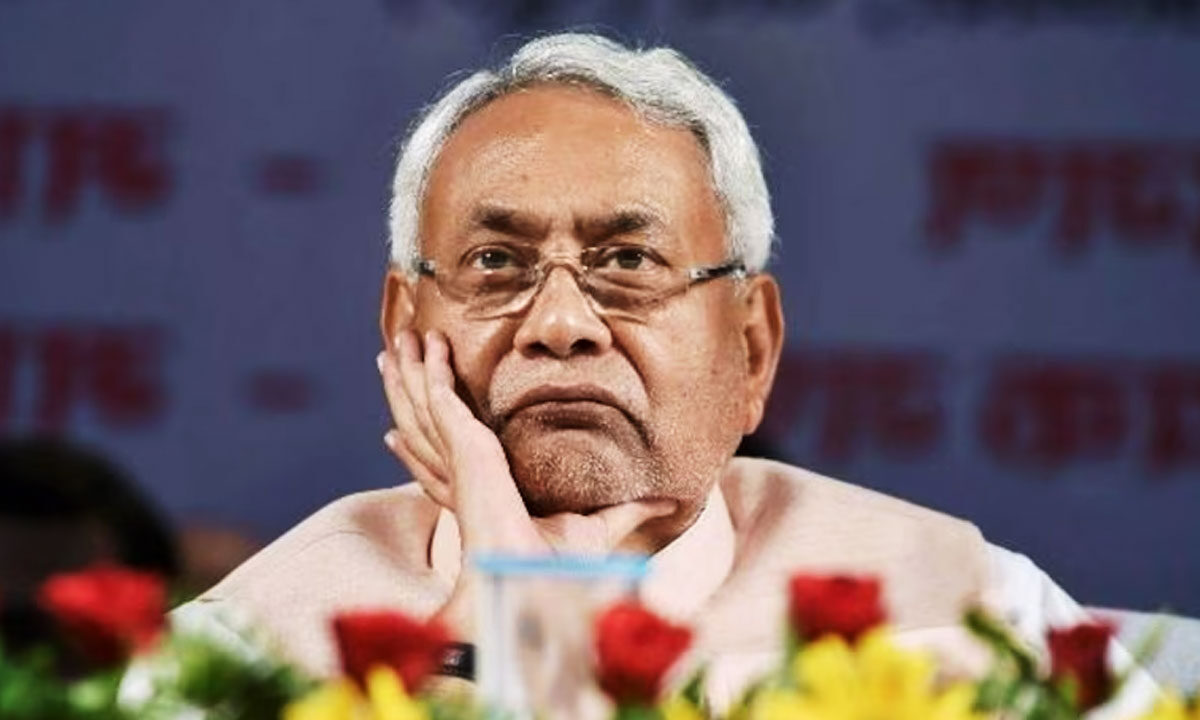JD(U) Faces Internal Crisis Over Waqf Bill Support, But Muslim Vote Bank Was Already Slipping Away
The Janata Dal (United) is facing internal tremors months ahead of the Bihar Assembly elections, with five Muslim leaders resigning over the party’s support for the contentious Waqf (Amendment) Bill, 2025.

Patna: The Janata Dal (United) is facing internal tremors months ahead of the Bihar Assembly elections, with five Muslim leaders resigning over the party’s support for the contentious Waqf (Amendment) Bill, 2025. The resignations have triggered concerns within the Nitish Kumar-led party about alienating the Muslim electorate, traditionally seen as a key vote bank in Bihar.
Table of Contents
However, an analysis of electoral data from 2014 to 2024 reveals that JD(U)’s hold over Muslim voters had already significantly eroded, particularly after its decision to realign with the BJP-led NDA post-2015.
From Muslim Support to Steady Decline
In the 2014 Lok Sabha polls, when Nitish Kumar distanced himself from the BJP and contested with Left parties, the JD(U) managed to secure 23.5% of Muslim votes, according to CSDS Lokniti.
This support grew in the 2015 Assembly elections, when JD(U) joined the Mahagathbandhan (Grand Alliance) with RJD and Congress. The alliance, as per reports, garnered around 80% of Muslim votes, signaling a strong shift of the community towards the anti-BJP front.
But the tide turned post-2015, when Nitish Kumar rejoined the NDA. The 2019 Lok Sabha elections saw JD(U) drawing just 6% of Muslim votes, while RJD-led parties retained 80% of the community’s support.
In the 2020 Bihar Assembly polls, JD(U) managed only 5% of the Muslim vote, and a similar trend continued into the 2024 Lok Sabha elections, where the party polled just 12% among Muslim voters—a steep fall from its peak.
Numbers Tell the Story
- According to the 2011 Census, Muslims make up 17% of Bihar’s population (about 1.75 crore people).
- With over 7.64 crore registered voters in Bihar (2024 data), the Muslim electorate stands at an estimated 1.29 crore.
Yet, JD(U)’s performance in Muslim-dominated districts reveals its decline:
- In 2015, the party won 7 seats across 24 Muslim-majority constituencies.
- In 2020, it was reduced to just 3 seats in the same regions.
Moreover, JD(U)’s attempt to showcase Muslim representation failed to yield results.
- In 2015, it fielded 7 Muslim candidates, 5 of whom won.
- In 2020, despite fielding 11 Muslim candidates, none secured a win.
Waqf Bill Fallout: A Symbolic Blow, Not a Strategic Loss
The support for the Waqf Bill appears to have caused a symbolic setback, leading to visible dissent within the party. However, data-driven insights indicate that the Muslim votebank had already drifted away due to JD(U)’s political realignment with BJP and support for central policies seen as antithetical to Muslim interests.
As JD(U) braces for the upcoming elections, it faces a deeper crisis — not just in community trust, but in political credibility. Whether Nitish Kumar can navigate this terrain or risks further fragmentation of his support base remains to be seen.
